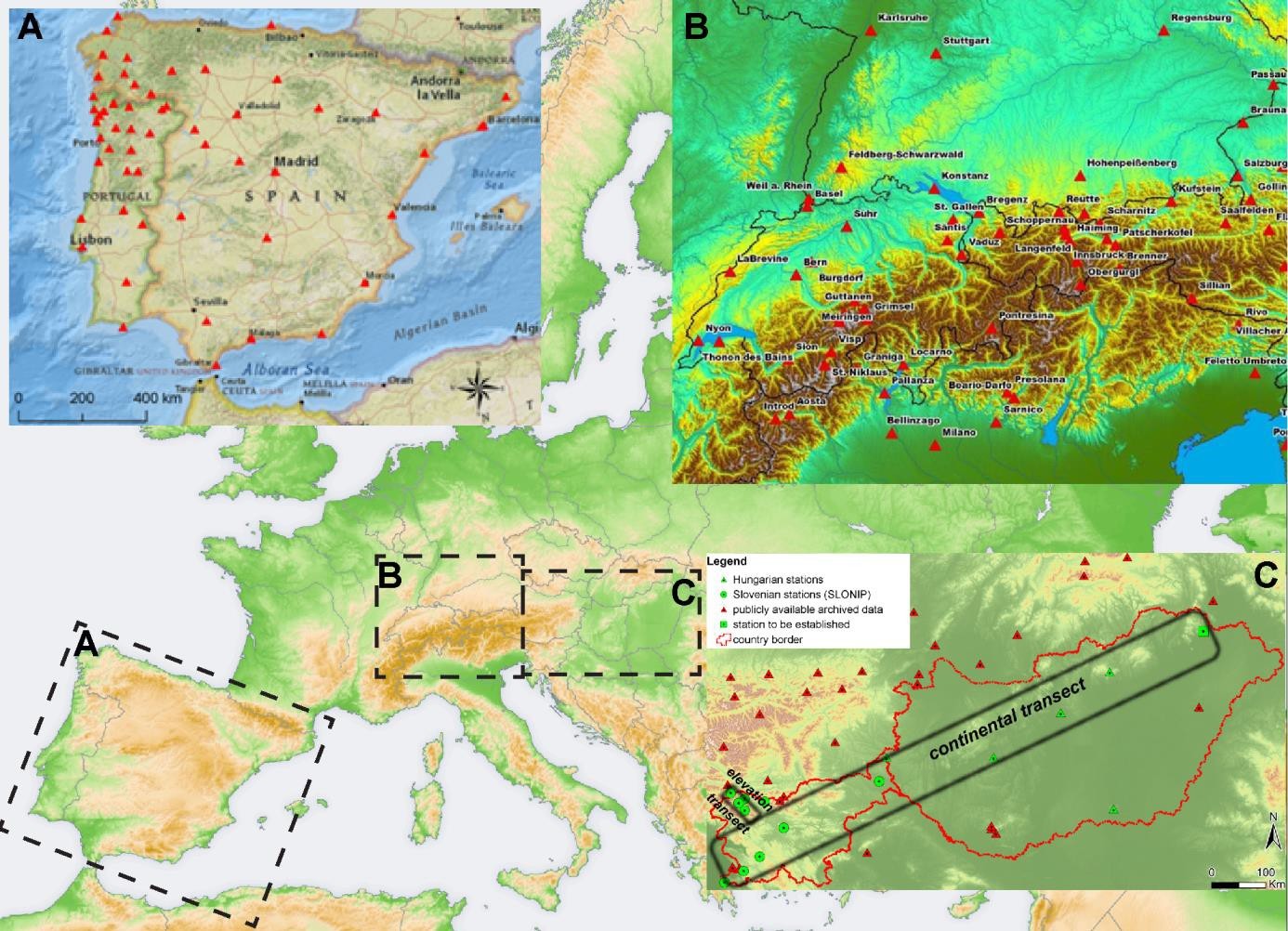Balázs KOHÁN, PHD
Balázs KOHÁN, PHD
invited professor
senior lecturer
Publications by Kohán Balázs on MTMT
Contact
Phone: + 36 1 372-2500/1807
E-Mail: balazs.kohan@gmail.com
Research interest
My prior and favourite field of study is GIS. As almous all research projects require GIS based analysis, my scientific intersts focus on various fields of study. In my phd dissertaion I analysed the aridification process of the Danube-Tisza Interfluve. Today I am a member of a resarch group that aims to explore the spatial distribution of water isotopes in precipitation. My third field of study is the UAV based floodplain relief and flooding simulation to help local flood prevention and defense. From a social point of view this is the field that has the biggest practical impact. In order to plan flood prevention and adaptation to increasing water levels, it is essential to recognize the movement of water on floodplains, flood dimensions, and it is also important to quantify the flood-related risks. In order to prepare for flood events, it is indispensable to get more precise information about the topography of floodplains and the spatial connections between the floodplains, the floodless areas and the surrounding riverbeds.
Current projects
Spatial distribution of water isotopes in precipitation in Europe with special focus on the transect from the Adriatic Coast to the Pannonian Plain (SNN- 118205)
An accurate picture of the spatial distribution of stable hydrogen and oxygen isotopes in modern precipitation is a prerequisite forgeographical, hydrological meteorological applications.
The primary scope of the project is to derive contiguous gridded datasets of basic isotopic characteristics (δ18O, δ2H, d-excess) of precipitation for certain European regions, primarily for the Adriatic-Pannonian domain. Derived datasets will provide:
- a valuable input and/or auxiliary data for regional hydrological modeling (e.g. sustainable water management, water resources protection, drinking water supply),
- a basis for regional ecological modeling (e.g. wetland protection, migratory studies),
- crucial local isotopic calibration targets for paleoclimate records (e.g. tree rings, speleothems),
- reference datasets for food authentication and traceability (e.g. wine, milk) studies,
Evaluation of the joint Hungarian-Slovenian precipitation isotope database will, for the first time, allow the estimation of the regional continental effect, an essential isotope hydrological parameter.
We will use the precipitation stable isotope data to derive the seasonally quantified estimates for the transpired portion of continental recycling water in the precipitation of the Hungarian-Slovenian region and will test the isotopic model in other European regions where both dense network of precipitation stable isotope and independent quantitative estimates of recycled moisture are available (e.g. Alps, Iberia).
As an additional useful outcome an optimal spatial organization of the for precipitation isotope monitoring networks in Hungary and Slovenia can be establish on sound scientific basis.
Project leader: Kern Zoltán
Project participants : Kohán Balázs, Mona Tamás, Breuer Hajnalka, Fórizs István, Czuppon György, Hatvani István Gábor, Göndöcs Júlia, Bottyán Emese

Challenges of sustainable urban development in Hungary (NKFIH 119710)
The issue of urban development has been high on the agenda in geographical research in Hungary over the last quarter of a century. The main reason is that urban development was liberated from the rigid control of the state after 1990. Urban sprawl became a dominant phenomenon around cities consuming vast quantity of natural and agricultural land, whereas deindustrialisation and the decline of certain branches of services left behind excessive brownfield sites in the texture of cities. The differentiation of residential quarters commenced alongside (regeneration versus decline). Previous research projects in Hungary have not, however, paid enough attention to the social and environmental challenges of urban development in the post-socialist era. The main objective of this proposal is, therefore, to investigate the challenges of sustainable urban development in Hungary in the post-1990 period. In the course of research, we would like to analyse landuse changes that have taken place both in the peri-urban and intra-urban spaces of large Hungarian cities. We would like to measure the environmental impacts of urban sprawl, and the changes of land-use inside cities. The planned research would also detect shifts in urban metabolism, i.e. the changing spatial pattern of demand for energy, mobility, and household consumption, as well as changes of ecological footprint in metropolitan regions. Research on the local level would focus on the socio-economic and environmental changes of selected neighbourhoods. We would like to find out people’s expectations about liveable urban neighbourhoods and the impacts of urban regeneration on the physical environment of residential quarters.
Project participants:
Project leader: Kovács Zoltán
Project participants : Szabó Balázs,Székely Gáborné,Kohán Balázs,Kondor Attila Csaba,Csutora Mária,Egedy Tamás,Sassné Dr. Berényi Eszter,Erőss Ágnes

